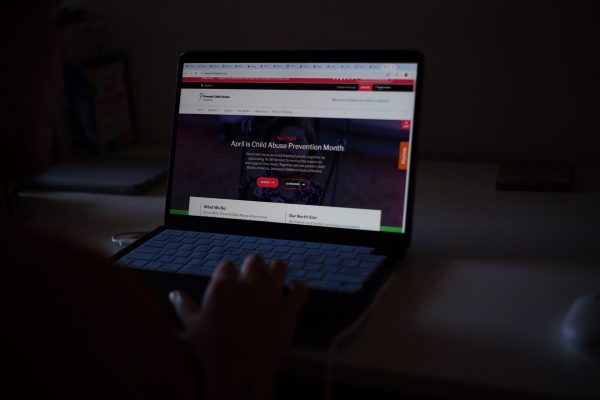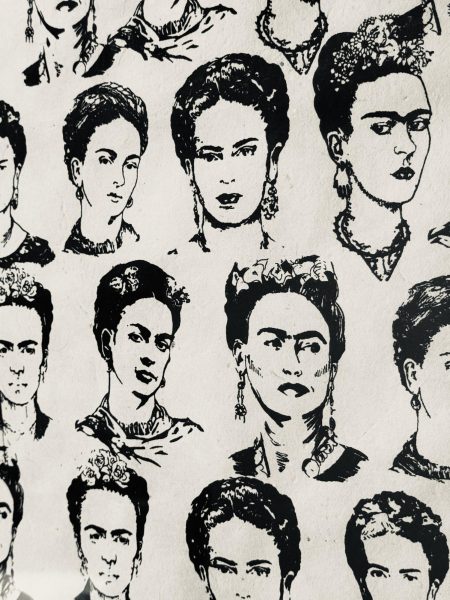Ballot Measures: a primer for students
October 14, 2016
When North Dakotans head to the polls this November, they will have more to vote on than just a local, state and national candidates. On the flip side of the ballot will be five ballot measures, giving voters the chance to directly weigh on whether the proposed measure becomes law.
Measures 1 and 2 were both passed by the North Dakota Legislature, and if they receive a majority vote from voters, will become part of the state’s Constitution. Measures 3, 4 and 5 were initiated by North Dakotan citizens, and if they pass, Measure 3 will become part of the state’s constitution, while 4 and 5 will become part of the state’s Century Code.
In this article, there will be a brief summary and background information about each measure.
Measure 1
This ballot measure would require that state legislators live in their legislative districts for the entire duration of their terms. To be specific, it adds the sentence, “An individual may not serve in the legislative assembly unless the individual lives in the district from which selected,” into the constitution.
It would also update the language in the state’s constitution so it applies to legislators who are both elected and appointed. This measure was cosponsored by the legislative leaders of both parties in the House and the Senate in 2015, and it passed both chambers with broad support, receiving over 90 percent of the vote in both chambers.
Measure 2
Measure 2 would change how money in the state’s Foundation Aid Stabilization Fund can be spent. Like Measure 1, it was a measure that was initially passed by the Legislature, and if passed by the voters this fall, would alter the state’s Constitution. Also like Measure 1, the legislation enjoyed broad bipartisan support while in the legislature, passing unanimously in the Senate and 68-21 in the House.
Currently, the North Dakota Constitution stipulates that the money in this fund can only be used to address shortfalls in foundation aid. If passed, this fund could be used for educational purposes in the event that state aid to school districts is reduced.
As of September 1, the foundation aid stabilization fund had $569,122,793 in it. Governor Dalrymple used the fund to shield K-12 education spending from cuts during the budget allotments earlier this year.
Legislation (SB. 2039) was passed by the North Dakota Legislature in 2015 that would use a portion of the foundation aid stabilization fund to create a scholarship fund residents for North Dakotans attending institutions of higher education in the state and would also establish a construction assistance loan fund to provide low-interest loans to school districts in North Dakota.
This legislation passed unanimously in both chambers of the North Dakota Legislature. While technically independent from Measure 2, the portions of S.B. 2039 involving the scholarship and loan funds are contingent on the passage of Measure 2 in order to take effect.
Measure 3
If adopted, Measure 3 would add a section on victims rights to the North Dakota Constitution. Specifically, it would give victims the right to be present and heard at all criminal proceedings, the right to be promptly notified of the release or escaped of the accused and the right to restitution, among other things.
The citizen-initiated is commonly referred to as “Marsy’s Law.” The name comes from Marsy Nicholas, who was murdered in 1983 in California. Her brother Henry Nicholas successfully pushed for increased protection of victims’ rights in California, and Measure 3, along with similar efforts in different states, is based on this original effort.
The petition committee for the measure is chaired by Kathleen Wrigley, the wife of Lieutenant Governor Drew Wrigley, and includes several state legislators. The measure has been endorsed by the North Dakota Sheriffs and Deputies Association. Proponents argue it is necessary to give victims the same rights in the state’s constitution as the one’s granted to criminal defendants.
The Measure has drawn opposition from the North Dakota Association of Criminal Defense Lawyers, North Dakota State’s Attorneys’ Association, North Dakota Victim Assistance Association, North Dakota’s Council on Abused Women’s Services and the, North Dakota Women’s Network. Critics argue the measure is an unnecessary change to the state’s constitution that could take away resources from existing services for victims and complicate the legal process.
Measure 4
Measure 4 would increase taxes on tobacco and liquid nicotine, commonly referred to as e-cigarettes. Half of the revenues from this tax would go into a fund for veterans programs in the state, while the remaining money will go to a community health trust fund.
The measure would raise the tax on a pack of cigarettes from 44 cents per pack to $2.20 per pack and would raise the tax on all other tobacco products from 28 percent of the wholesale purchase price to 56 percent.
Currently, North Dakota has the 4th lowest tax on tobacco in the country. The average tobacco tax in America is $1.65 per pack of cigarettes, according to the Campaign for Tobacco Free Kids. The North Dakota Tax department has estimated that this tax would generate $170.4 million in tax revenue through through June 30, 2019.
Opponents of the measure include the ND Petroleum Marketers Association Altria Client Services and R.J. Reynolds Tobacco Co. Primary arguments against the measure are that it raises taxes on tobacco products by nearly 400 percent and that the programs that receive the revenue raised from the tax increase are poorly defined.
Supporters of the measure include members of the “Raise it For ND Coalition.” The list of members includes the North Dakota Medical Association, North Dakota Veteran’s Council and Tobacco Free North Dakota, among other groups.
Supporters argue increasing the tax would lower smoking rates and long term costs associated with smoking and would provide increased revenue for veterans’ programs and the state.
Measure 5
Measure 5 would legalize medical marijuana “to treat defined debilitating medical conditions, such as cancer, AIDS, hepatitis C, ALS, glaucoma, and epilepsy, and developing certain procedures for regulating medical marijuana growing, dispensing, and usage.”
If adopted, the measure would create a legal framework for the use of medical marijuana. Users would be required to obtain an identification card and could be dispensed up to three ounces of marijuana, and would be able grow marijuana if their home is located more than forty miles from the nearest registered facility, according to an analysis from the ND Secretary of State. The ND Department of Health would be required to regulate and enforce the sale and use of marijuana in the state.
State Department of Health estimated that the measure would total $12.6 million in additional expenditures and $6 million in revenue through June 30, 2019. 25 other states in America have legalized medical marijuana.
Supporters of the measure have formed a committee called the North Dakotans for Compassionate Care and have cited the health benefits of medical marijuana in their arguments in favor of the measure.
The North Dakota Medical Association has opposed the measure, arguing that the Food and Drug Administration has not yet fully examined the health effects of using marijuana.
Sean Cleary is a copy editor for The Dakota Student. He can be reached at [email protected]











